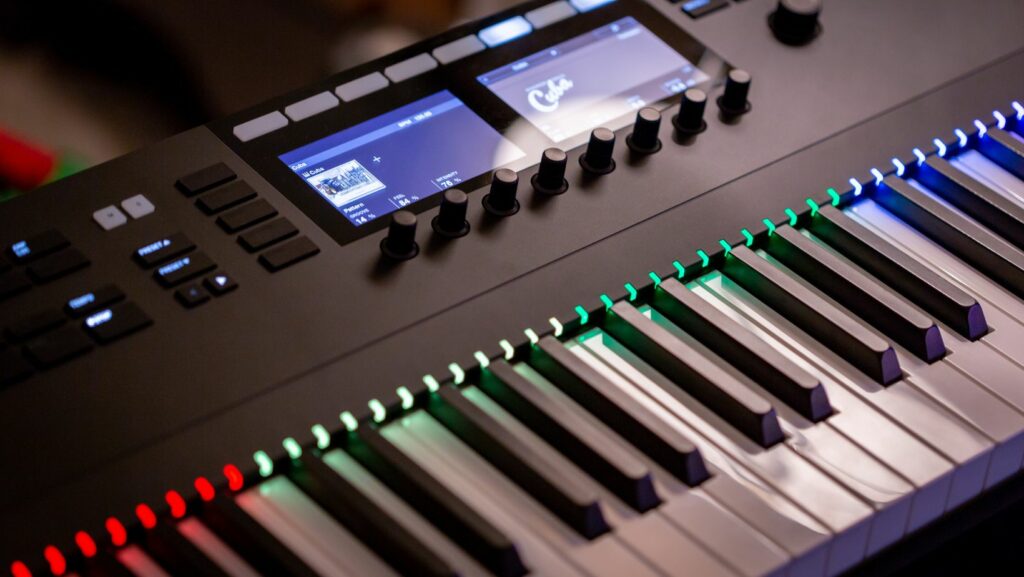In the ever-evolving world of music, technology has become a key player. It’s no longer just about natural talent and traditional instruments. Today, the music industry heavily relies on advanced technology, giving rise to a new generation of artists and producers. This is where music technology programs come into the picture.
Music technology programs are shaping the future of music, empowering artists with the tools they need to create, produce, and distribute music in innovative ways. Whether you’re an aspiring musician, a seasoned producer, or simply a music enthusiast, understanding these programs can open up a world of possibilities.
Join us as we delve into the fascinating realm of music technology programs, exploring how they’re revolutionizing the industry and changing the way we create and consume music.
What is Music Technology
 The past century has witnessed profound changes in the field of music technology programs. Emergence of electrical and digital systems play a large part in this transition. From Thomas Edison’s invention of the phonograph in 1877, to the advent of the Moog synthesizer in 1964, advancements in technology have consistently remolded the landscape of music production.
The past century has witnessed profound changes in the field of music technology programs. Emergence of electrical and digital systems play a large part in this transition. From Thomas Edison’s invention of the phonograph in 1877, to the advent of the Moog synthesizer in 1964, advancements in technology have consistently remolded the landscape of music production.
In the 1980s, MIDI (Musical Instrument Digital Interface), a notable revolution, introduced a standardized method for electronic musical instruments to communicate with each other. Coupled with computer software, MIDI allowed for artists to experiment with a broad spectrum of sounds.
As technology continued to evolve, so did music tech programs, gradually leading to the digital era of the 21st century. This period brought a wave of digital music production software like Pro Tools, Garageband, and Ableton Live which enabled artists to create, edit, and distribute music from their personal computers.
A look at key milestones in the development music technology programs underscores their transformative impact on the music industry. First, the utilization of electrical systems in the 1920s and 1930s, such as the theremin and the ondes Martenot, established the foundations of electronic music.
Core Components of Music Technology Programs
 Following the historic evolution of music technology, studying in this field requires a comprehensive understanding of various key elements. Across most music technology programs, integral parts include coursework and curriculum, integration of software and hardware, and practical experience and professional application.
Following the historic evolution of music technology, studying in this field requires a comprehensive understanding of various key elements. Across most music technology programs, integral parts include coursework and curriculum, integration of software and hardware, and practical experience and professional application.
Every good music technology program offers to their students a rich curriculum with subjects covering audio recording, music production, and enhancement using digital tools. Courses often cover topics including digital audio theory, acoustics, and practical music-making using technology. For instance, the curriculum at Berklee College of Music’s Electronic Production and Design department includes units on sound synthesis and sampling, music production for media, and live electronic performance; hence, trainees gain mastery over all facets of making and enhancing music.
Leading Institutions Offering Music Technology Programs
 Beyond exploring the historical milestones and key components of music technology programs, an overview of the leading educational institutions offering these programs brings valuable context to aspiring students and music tech enthusiasts. In each distinct realm, both western and eastern, academic institutions set global benchmarks for superior programs in music technology.
Beyond exploring the historical milestones and key components of music technology programs, an overview of the leading educational institutions offering these programs brings valuable context to aspiring students and music tech enthusiasts. In each distinct realm, both western and eastern, academic institutions set global benchmarks for superior programs in music technology.
- Berklee College of Music, replete with state-of-the-art facilities, asserts its presence as a stellar player in the music technology academic terrain. Its Electronic Production and Design department focuses on music creation using new technologies and electronic musical instruments.
- Another key institution, the University of Southern California’s Thorton School of Music, aside from robust coursework in audio engineering and music production, offers students access to technologically advanced recording studios. Thus, anchoring the practical application of concepts taught.
- Additional noteworthy mention, the New York University Steinhardt’s Music Technology Program comprises a progressive curriculum, laden with advanced audio research and sound synthesis techniques. These real-world applications imparted, promote cohesive and comprehensive learning experiences.
In all regions, these institutions remain committed to harnessing and uncovering the vast potential of music technology, cultivating a future generation of adept music technologists. Through their program offerings, they continue to propel the music tech industry forward, influencing its development and trajectory in the 21st century.

